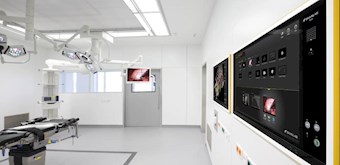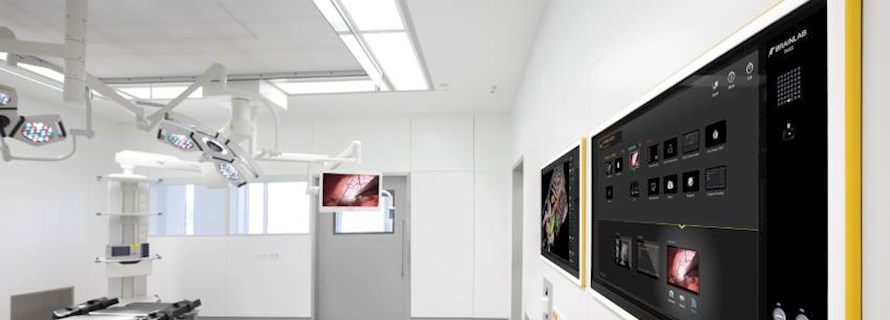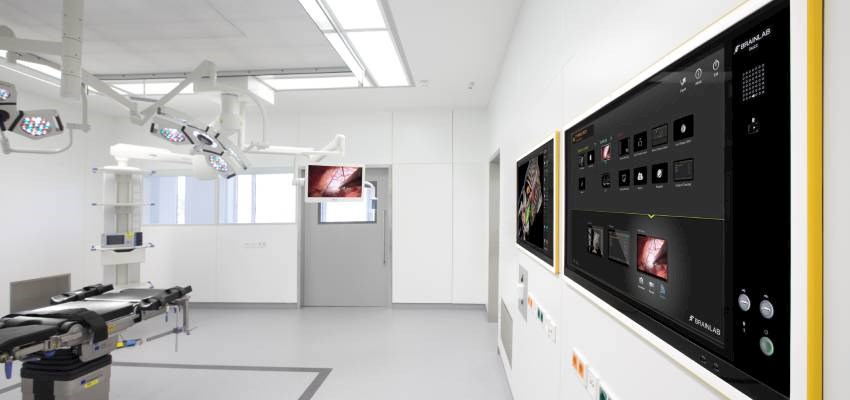Craniotomy for glioma
Surgery to remove a brain tumour which originates in the glial cells that surround and support neurons in the brain
Our neurosurgeons can carry out a craniotomy to remove gliomas
About removing a glioma
Gliomas are brain tumours that develop from the ‘supporting’ cells in the brain called glial cells. If you've been diagnosed with a glioma, our neurosurgeons may be able to carry out a surgical procedure, called a craniotomy, to remove it. Unlike benign tumours, gliomas are not well circumscribed and may diffusely infiltrate the brain around the obvious mass seen on scan.
We recognize different ‘grades’ of glioma from I-IV.
- Grade I tumours are truly benign and are normally treated by surgical removal but sometimes radiotherapy is advised.
- Grade II are considered ‘low grade’, they are not truly benign and usually cannot be completely removed. These are slowly growing but have the potential to transform into more malignant rapidly growing tumours
- Grade III and Grade IV. There are also different cell types in gliomas, and the two commonest are astrocytomas (developing from astrocytes) and oligodendrogliomas (arising from oligodendrocytes).
Your consultant will discuss the implications of your diagnosis once the pathology results are available.
Need to know
-
What happen during surgery icon plus
Your neurosurgeon will start by creating a window in your skull to access your brain. Depending on the location of your glioma (tumour), they'll then aim to remove as much of it as they can.
If the glioma is too close to healthy tissue, they may not be able to remove all of it. At the end of the procedure, your neurosurgeon will put the bone back in place and secure it.
Tissue from the glioma will be sent away to be examined by a pathologist and your consultant will then guide you through your treatment options. A craniotomy for glioma is usually the start of a wider treatment plan, which may involve radiotherapy and chemotherapy. -
How to prepare for surgery icon plus
Before your craniotomy for glioma, you'll most likely be asked to attend a pre-operation appointment. Your neurosurgeon will explain what happens during a craniotomy and how to prepare for it.
You'll most likely be asked to limit your food and drink intake in the hours leading up to the procedure, as you'll be receiving a general anaesthetic
-
After surgery icon plus
After your craniotomy, you'll be taken to our recovery area. Depending on the normal practice of your surgeon, your head may be bandaged. If so, this will normally be removed after two to three days.
You may have a drip placed into your arm to keep you hydrated, and you may also have a catheter inserted into your bladder. These will be removed as soon as you are eating, drinking and mobile.
Your consultant or nurse specialist will let you know when you can leave the hospital. They'll also arrange a follow-up appointment to discuss the results of the glioma biopsies.
State-of-the-art intraoperative MRI for neurosurgery
As part of HCA Healthcare UK’s continued investment in the latest medical technology, The Wellington Hospital’s Neurosurgery Centre is now equipped with an intraoperative magnetic resonance imaging (iMRI) scanner and fully integrated digital theatre.
The iMRI scanner allows surgeons to carry out an intraoperative MRI scan of their patient’s brain during their surgery. This gives the surgeon confidence that they have achieved their treatment goal. It also provides our patients with the best possible chance of tumours being removed fully without the need for further surgery.




Our neurosurgeons
Our consultants are experienced in all aspects of neurosurgical care, and work closely with neurology and neuroradiology consultants.




Our locations
From complex neurosurgery to diagnostic tests and procedures, we provide exceptional neurosciences care across our network of hospitals, outpatient centres and specialist clinics.
Book an appointment
Our team can help with any enquiries or you can make an appointment with one of our experienced consultants.
Call us today
020 7079 4344